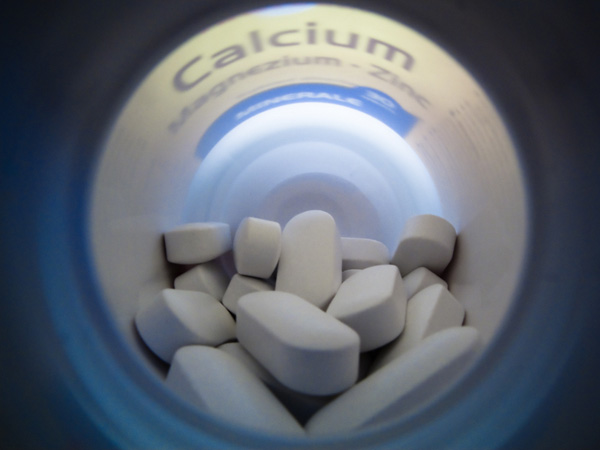
Americans are encouraged to get more calcium to build and maintain strong healthy bones. But recent headlines suggest that too much calcium could actually be bad for your health and may not, after all, do much to protect your bones. So, what should you do? Until new research provides clear answers, ditch those supplements in favor of calcium-rich foods ... and don't overdo it.
Calcium is key.
Muscles, nerves, veins and arteries, enzymes and hormones all depend on calcium to function properly. If we don't get enough calcium in our diets to do these important jobs, our bodies take some from our bones. It stands to reason that if we don't take in enough calcium, our bones will eventually become weak and easily broken. But how much is enough? Is there such a thing as too much? And what is the best way to get calcium?
Too much of a good thing?
The Institute of Medicine (IOM) recommends most adults should aim for 1,000 milligrams (mg) per day, and women over 50 and men over 70 should get 1,200 mg. Since vitamin D is necessary for calcium absorption, the IOM recommendations include guidelines for vitamin D intake as well: 600 to 800 International Units (IU) a day for adults
While lots of experts, like the National Osteoporosis Foundation, the Dietary Guidelines, and the American Society for Bone and Mineral Research agree with the IOM's recommendations, a number of researchers think the recommendations are too high. They cite numerous studies that fail to show any relationship between calcium intake and bone density or fracture risk. To make matters worse, calcium supplements make a lot of people constipated, and some studies suggest they may increase risk of kidney stones and heart attacks. Supporters of the recommendations counter that a lot of these studies are inconclusive or flawed.
While all of this confusion gets sorted out, here is what we know for sure:
Food is better than supplements. Everyone is in agreement that we should get our calcium from food first. If you are unable to get enough calcium through food, then use supplements to make up the shortfall.
Don't overdo it. There is no benefit to eating or taking more calcium than the recommended daily amount, and too much may even be harmful.
Got D? Vitamin D is added to milk and a number of other foods, and it's found naturally in some fatty fish like salmon, but spending 15 minutes outside two or three times a week (without sunscreen) may be all you need. (In colder climates, increase vitamin D dietary intake from October through March, since the sun is weaker.)
Phosphorus for us. Other nutrients, like phosphorus, also are critical to bone health. Phosphorous is found in foods like fish, dairy, poultry, meat, lentils, nuts and whole-grains.
Dairy plus. Dairy foods are an excellent source of calcium, but they are far from the only source. Non-dairy foods such as tofu, greens and brown rice are good sources of calcium.
Grin and bear weight. Exercise doesn't just build muscle it also builds bone. People of all ages should do weight-bearing exercises, like running, brisk walking, climbing stairs or dancing for a total of 30 minutes a day, and do muscle-strengthening exercise two or three times a week.
Hold the salt. The more sodium you eat, the more calcium you excrete. If all that calcium came from your bones, you could lose up to 1 percent more bone a year for each extra gram of sodium you eat a day.
We need more research to work out the inconsistent and inconclusive information we have on calcium. Until then, aiming for -- but not above -- the current recommendations (preferably from food), eating a healthy balanced diet and staying active are the best.
Comment by clicking here.



 Contact The Editor
Contact The Editor
 Articles By This Author
Articles By This Author